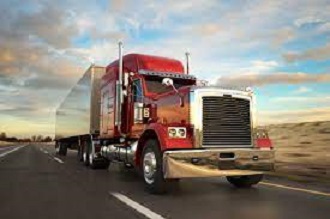When you sit down to arrange transport for your car, the choice often narrows to open versus enclosed carriers. Most owners prioritize how well their vehicle will be safeguarded, yet many believe that enclosed trailers deliver a cleaner environment for the cargo. Does the reality support that assumption? This piece examines the cleanliness of enclosed trailers, showing how their built-in features typically make them the superior option for keeping a vehicle looking its best.
What Are Enclosed Trailers?
Enclosed trailers are built to wrap cars in protection against a wide variety of transport-related threats. Unlike open carriers, which expose vehicles to the open skies, rain, road debris, and the effects of road spray, enclosed trailers create a completely sheltered space. Inside that space, the team can manage temperature and humidity, which matters a great deal for prized cargo—luxury sedans, classic restorations, and high-performance contenders that deserve extra care against rain, soot, and the bumps of ramps.
Enclosed trailers are mainly found in two designs: soft-sided and hard-sided. The soft-sided versions have lightweight fabric walls and adjustable frames, while the hard-sided versions incorporate sturdy, rigid panels around a reinforced solid roof. Both variations provide better cargo protection than an open carrier, though they achieve it in different ways.
Do Enclosed Trailers Keep Loads Cleaner?
Enclosed trailers block rain, dust and splashes of road grime from reaching the cargo, but they cannot ensure absolute sterility. How clean the interior stays largely depends on the cargo type and how consistently the trailer is maintained.
The main influencers on interior hygiene are:
- Trailer Maintenance
The overall cleanliness of any transport trailer, open or closed, rises and falls with its maintenance schedule. Professional transport fleets such as Carson Shipping, for instance, assign specific cycles for washing and inspecting each trailer. Open models frequently undergo washing because dirt and chemicals hit them directly. The solid walls of an enclosed trailer extend the time it can functionally go untreated, though grime cannot be ignored.
Dust, road sand and small loose bits can still arise in transit. In an open trailer, they gather in the vehicle. In an enclosed trailer, a front and rear barrier slows the distribution, but small particles can still drift in when the doors open or close. Regular interior cleaning remains necessary to keep the cargo clean and to protect any fresh paint from finishing-contaminating particles.
- Type of Vehicle Being Transported
The keep-clean routine depends partly on what you’re moving. If the vehicle has rolled through saturated fields or sticky chalk mud, the transport company might call for a wash-down before It boards either style of trailer. Concourse-level machines that get frequent detailing stay nearly dust-free when loaded, however, because a final wipe happens right before they’re strapped in, and the enclosed trailer keeps stray particles out.
- Guarding Against the Elements
Enclosed trailers remain the preferred way to move cars because they create a nearly seamless barrier against the rain, snow and bitter winds that can sting a finish. The sturdy sidewalls stop sap-dripping branches, roadside dust, and sky-borne bird deposits before they can settle; when the vehicle finally drives off, the paint still glows without the faint hitches or trails that open trailers can leave.
That advantage isn’t indestructible, though. A trailer that skips its interior wash quickly devolves into a grit chamber, where micromoles of dust dance in the air and settle on the next car. Each fresh load can inherit faint swipe trails that mar otherwise flawless paint. To sidestep this risk, choose a carrier that follows a written daily and weekly cleaning plan for its enclosed fleet. A spotless cabin is as crucial as the trailer’s armor.

- Airflow and Moisture Management
Today’s enclosed trailers typically feature engineered airflow ducts and passive vents to temper humidity and discourage mildew from lurking behind the skin. Yet passive drafts alone can fall short.
Dust motes that drift down to tired floors tend to choose the moment you finally polish the paint to fan out in a glittering hush. A few trailers head that off with hush-quiet fans that coax a soft tide of fresh air from outside; the fresh tide replaces the stuffy cabin air in a way that hushes the motes to the edge. Other trailers set their hopes on trim, high-placed vents, but on hot days the slow crawl of outside air can’t push the cabin heat out fast enough. If the whole setup is a skosh underpowered, the first trip can tell the brakes to bite the trees too hard; the second trip can check the night with a haze of grit that settles on the glass and laughs at the polish.
Schedule regular inspections of the trailer’s ventilation system, and make sure routine checks are documented, and you’ll maintain an interior that’s as pristine as the tough outer shell.
Every enclosed Carson Shipping trailer ventilates in a way that keeps the bay dry and free of contaminants. Controlled airflow stops moisture from condensing. That, in turn, prevents the dirt and mold that might settle on your vehicle during haulage.
- Precision-Made Protection
Even the final inspection will reveal no trace of dirt. Find auto transport partners that allow you to customize trailer service to your exacting needs. You can order a complete trailer wash right before the vehicle is loaded, or you can select padding that calms impacts while keeping grit at bay. Layering such conscious steps, load after load, assures that the car arrives in showroom condition.
Why Select Enclosed Transport?
Enclosed trailers are not the only option, but they shine in critical areas when moving valuable or sensitive vehicles. Their advantages include:
- Total elemental barrier: The sealed bay deflects rain, hail, UV rays, and road debris, keeping the paint and finish flawless.
- Heightened security: Opaque sidewalls hide the vehicle, reducing the chances of tampering or theft while the trailer is in motion.
Ultimate peace of mind: Slip your vintage or luxury car into a fully enclosed trailer and your nerves smooth out. The rig wraps the vehicle so snugly that minor bumps, stray spray, and prying glances slide away, almost as if the car is resting in its private garage-on-wheels.
Final thoughts: Is an enclosed trailer the right call?
Deciding between enclosed and open trailers boils down to what you value most and the car you’re moving. Pure protection peaks with an enclosed setup, ideal for anything you’d hesitate to replace. That said, an open trailer can stay tidy if the crew keeps up on cleaning, the car is sturdy, and the route is reasonable.
At Carson Shipping, we handle every trailer—whether clad in gleaming walls or wide open—like tomorrow’s collectible. Our rigs shine, run straight, and block dust and chips. If your arrival demands a spotless, sheltered, and utterly dependable ride, the enclosed trailer is polished and waiting for its next call.

